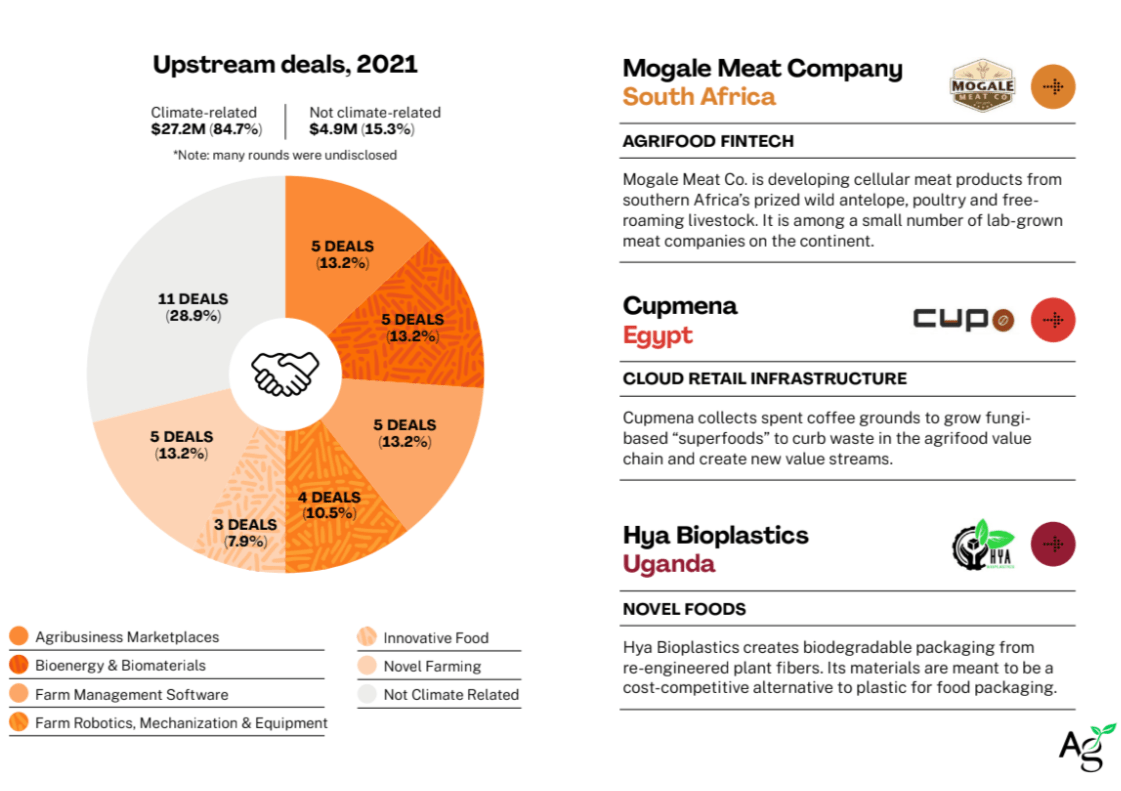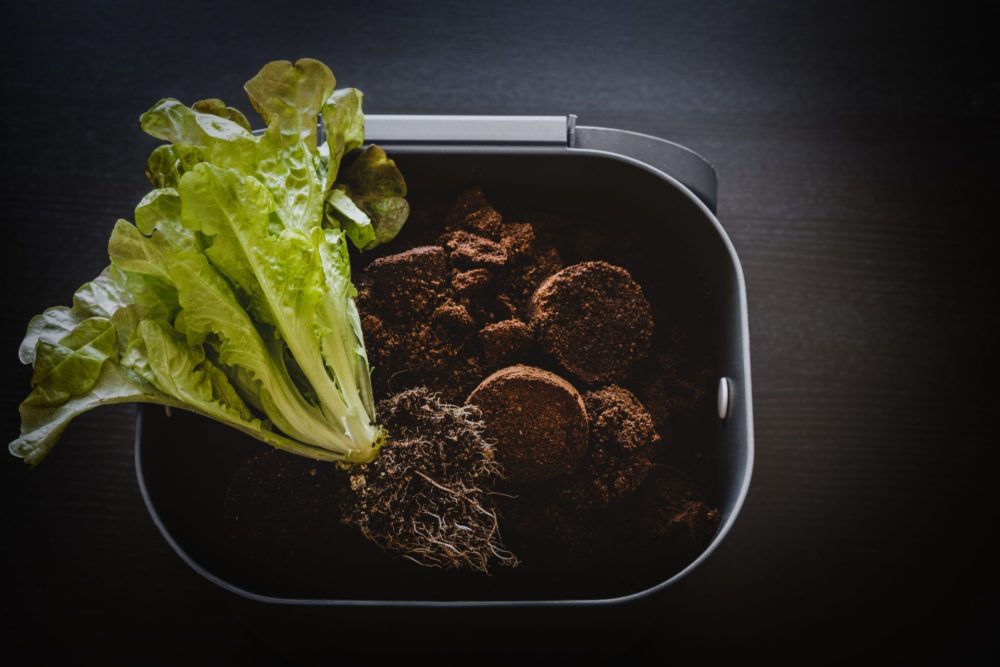Africa is responsible for just 3% of global carbon emissions. But global warming and other climate change impacts are negatively impacting these economies, particularly the resulting and increasingly extreme and unpredictable weather events. In the context of the agrifood sector, these are threatening the continent’s food value chain, from farmers’ yields to consumers’ wallets.
While there are calls for some developing nations to seek compensation from the world’s biggest emitters at COP27 in a few weeks, developing nations must also look to technology to mitigate the impacts of climate change – or adapt.
In the agrifoodtech ecosystem, upstream technologies — those operating on the farm or in the production of food — are where the greatest climate opportunities are, and investment in these categories will be critical to improving Africa’s climate resilience.
And the good news is that nearly 85% of dollar investment in upstream African agrifoodtech went to climate-focused startups, according to the 2022 Africa AgriFoodtech Investment Report. But at a total of just $27.2 million, it’s still clearly under-invested.

Exmaples of startups offering climate-related solutions include farm management software platforms, bioenergy and biomaterials, novel farming systems, alternative proteins, farm robotics and mechanization as well as agribusinesses marketplaces.
Who were the financiers?
South Africa’s Mogale Meat, an alternative protein company, netted pre-seed investment from New York-based accelerator Big Idea Ventures (BIV), whose startup program focuses entirely on alternatives to animal-based products. BIV also invested in another South African startup – De Novo Dairy, a producer of animal-free dairy through precision fermentation. These were BIV’s first African startups.
Egypt’s Cupmena is an agritech startup that transforms spent coffee grounds into superfoods for different types of mushrooms and organic soil fertilizers. The startup that doubles up as a waste management company was last year selected as one of the 21 startups to join the Sustainability MENA 2021 Accelerator Program. Cupmena received funding from the programme which was backed by Village Capital with support from the International Finance Corporation (IFC).
Uganda’s Hya Bioplastics was another startup to secure climate-related backing. The producer of biodegradable packaging from plant fibers was part of the 2021 cohort of the Techstars Farm to Fork Accelerator. The accelerator co-funded by Ecolab and Cargill supports startups innovating in food safety, waste management, farm productivity, and the general food supply chain.





